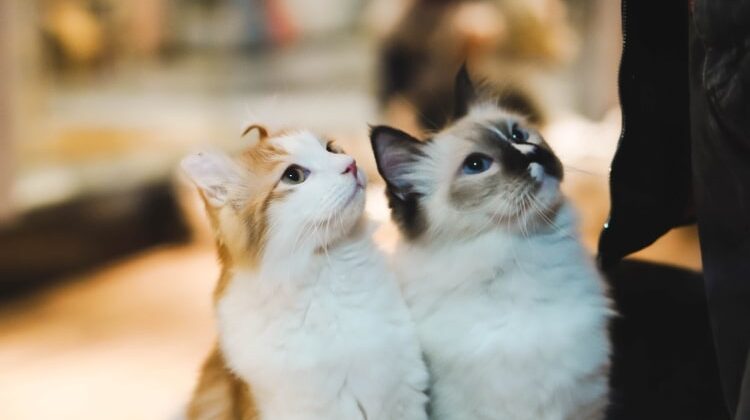
Pet owners would find it difficult to think that their animal companions don’t comprehend when they speak to them. After all, the tiniest head tilts and responses to speech tones suffice as evidence that animals understand their human counterparts. But cats can be cryptic. Do they pay attention? Well, a recent research has given some support to what many cat owners already know to be true: cats are constantly paying attention, regardless of how distant they may appear to be. While at it, the cat is also picking up some human words, notably the names of other cats.
Saho Takagi, a Ph.D. student at Kyoto University, has examined the hypothesis that cats living in close quarters may remember one other’s names. The study included 29 cat café patrons as well as 19 domestic cats living in homes with at least two additional feline occupants.
The researchers used the presumption that cats show surprise by gazing longer at the unexpected to gauge the results. The hypothesis is realistic, if not always quantitative, given this response has been observed in human neonates as well as in other species. Prior to the experiment, the researchers did not try to teach the participants the names of other cats. The focus was on researching how animals “spontaneously learn links between names and faces in their everyday encounters, comparable to what human toddlers do.”
To do this, scientists played each cat a recording of its owner calling a cat by name before displaying a photo of a well-known feline on a laptop. In the first half of the trials, the photo matched the name called, and in the second half, the opposite was true. The findings demonstrated that domestic cats did, in fact, pay greater attention to the picture displayed in the incongruent situations, “suggesting an anticipation violation effect”; they were shocked to see a different cat from the one whose name had been called. Cats that have been with their human family for a longer period of time seemed to have this inclination more.
Because there were fewer third-person contacts when a human called a specific cat by name to watch, it is probable that the café cats did not exhibit this propensity.
19 domestic cats were tested, which may be a tiny sample size for statistical significance, according to skeptics. On the other hand, the impact was stronger the longer the cats had been living with their people. Overall, the research “provides evidence that cats associate a companion’s name and corresponding face without formal training,” according to the study’s conclusion. They’re undoubtedly paying attention.

Leave a Reply